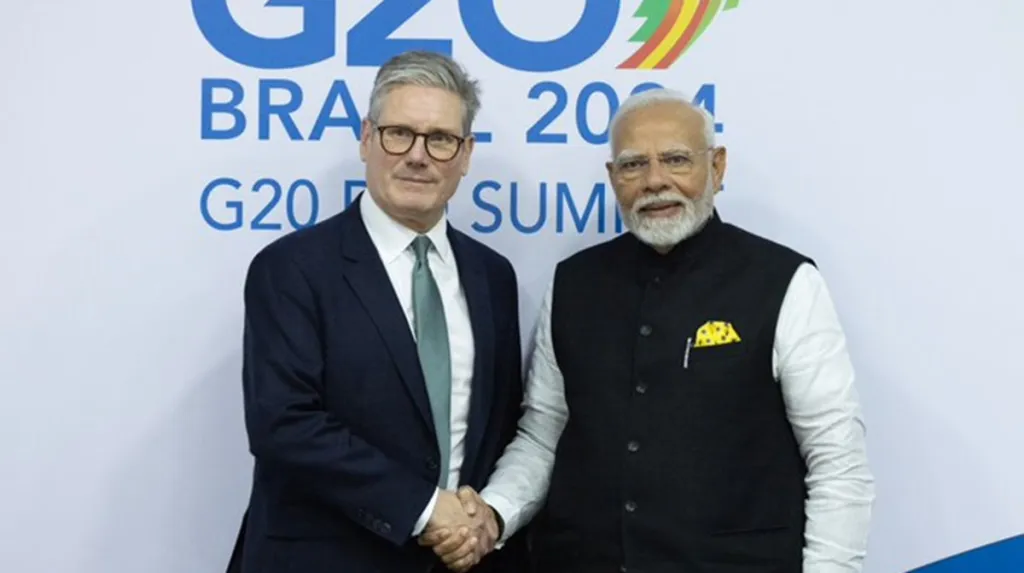The UK-India Free Trade Agreement (FTA) in May 2025 is a landmark moment to enhance economic engagement between two of the world’s fast-emerging economies. Encompassing areas such as goods, services, investment, and regulatory policies, the landmark deal will create new channels of trade, enhance market access, and set the ground for long-term economic partnership. But how the individual nations respond to the opportunities and challenges of the FTA will determine much of its effect on business and legal regimes.
One of the largest benefits of the FTA is the massive reduction in tariffs. India will be lifting tariffs from 99% of UK exports, and the UK will be lifting them from 90% of Indian exports. This has substantial benefits, especially to industries like textiles, motor, and consumer goods. The textile industry in India, for instance, will gain from better access to the UK market, while UK exports of Scotch whisky will benefit by £1 billion over five years as a result of the tariff level reduction from 150% to 75% in the first instance and to 40% in ten years. While these tariffs have the effect of stimulating trade, the growth of non-tariff barriers, particularly in such fields as sustainability standards, can potentially complicate market access for certain Indian products, for example, textiles and apparel.
The FTA also provides for professional services, most notably with the introduction of a mutual Young Professional visa scheme. This will enable degree holders to work and remain in nations where they are eligible for a two-year and longer term, to the advantage of such sectors as IT, healthcare, and engineering. Indian professionals will gain ready access to the British jobs market, even uniting the two nations further. But regulation harmonization is still a problem, particularly for legal services. India has not transitioned to open up its market for law on a comprehensive basis to foreign companies, and thus, this prudence can restrict the extent of outreach for cross-border practice of law, though other service sectors tend to have more to gain more broadly.
The agreement is also legally incredibly important, most notably as it relates to intellectual property protection rights (IPR). Britain has promoted further protection of IP through patent extension period and exclusivity of data for innovation to be preserved, as well as to protect valuable industries. India has refused to make such appeals, however, on the basis that extended lives for patents will hinder access to cheap medicine. India’s dominant generic pharma industry has been one of the primary driving forces in offering medicines at low costs worldwide, and the UK’s attempt to subject pharmaceuticals to stricter IPR conditions threatens to destabilize this. This line implies balancing protection for intellectual property against ensuring life-saving medicines are available at affordable rates, especially for developing countries.
Digital trade, which also presents legal issues, is another imperative part of the FTA. The FTA promotes free data flow, as required to facilitate enhanced digital trade. India’s slow Digital Personal Data Protection Bill, however, is unclear regarding how data privacy would be regulated. As the bill is yet to be prepared, India’s absence of a robust data protection law acts as a hurdle to the digital aspects of the FTA, especially data localization and cross-border data flows. Data protection mechanisms in the UK and India would have to be aligned with each other through constant dialogue to safeguard privacy concerns appropriately. Environmental and labor standards are also major concerns of the FTA. Environmental and labor issues with binding commitments have been favored by the UK in steps to introduce more justice and more equality into world trade. But India has been apprehensive that such agreements would hinder its industrialization, especially in low-wage labor sectors. India has signaled its success on the workers’ rights and sustainability side and has demanded the right to take decisions in line with its development priorities. Correspondingly, therefore, the FTA provides for cooperation in those areas but under no legal compulsion so that both nations can further their priorities without weakening the competitiveness of either. Public procurement is a concern area. The UK has sought larger access to the public procurement market of India, most notably government contracts. India has stuck to its protectionist culture of the domestic industry, especially for SMEs.
All in all, the UK-India Free Trade Agreement is a colossal growth opportunity, especially in trade, investment, and professional exchange. Tariff cuts, better market access, and professional mobility are all massive opportunities to be exploited across sectors from textiles to autos to pharma. But the rule-of-law bits—above all, intellectual property, data protection, environmental and labor standards, and public procurement—have to be pushed hard. Whether the FTA is a success or a failure depends on how far the two countries handle these complex matters and resolve them in a manner that serves both sides in the context of economic progress without sacrificing policy concerns and regulatory concerns. Managed properly, the UK-India FTA will be one of the front-runners in the cause of bilateral relations and the creation of an integrated global economy.

